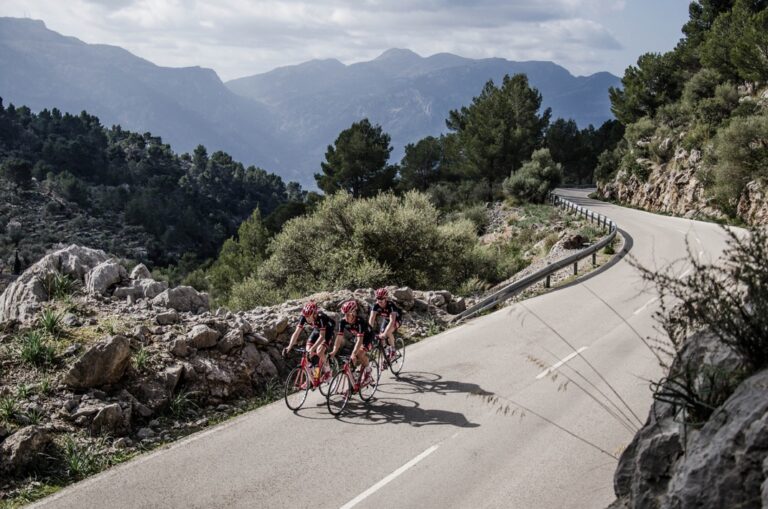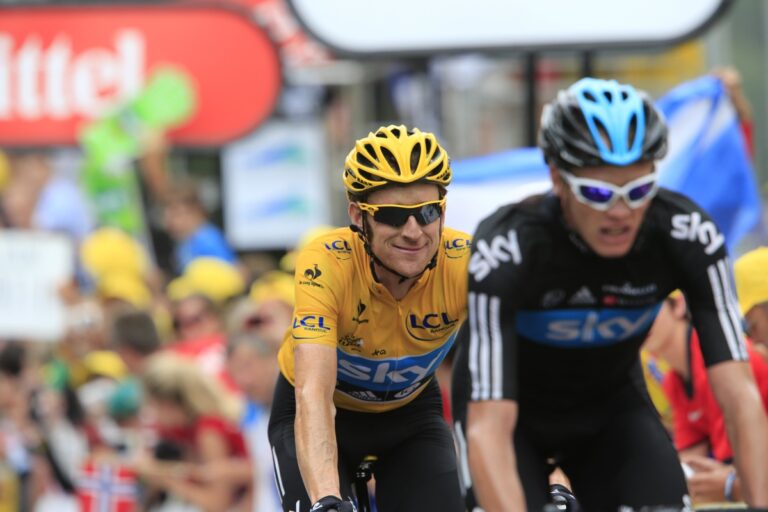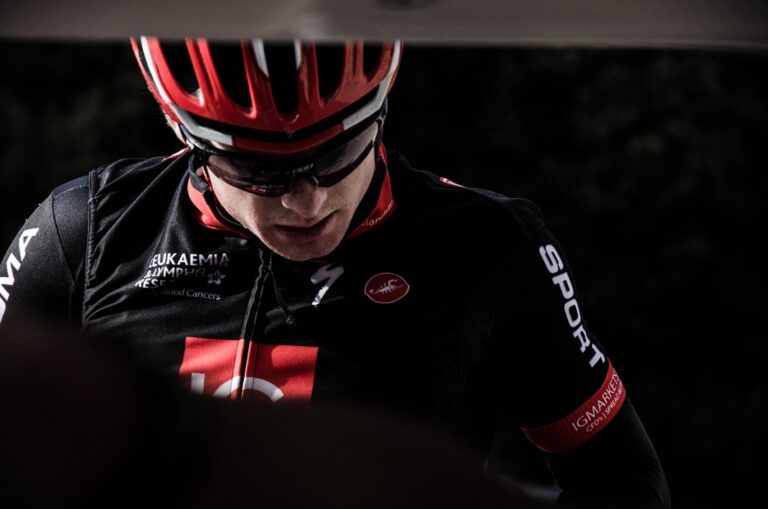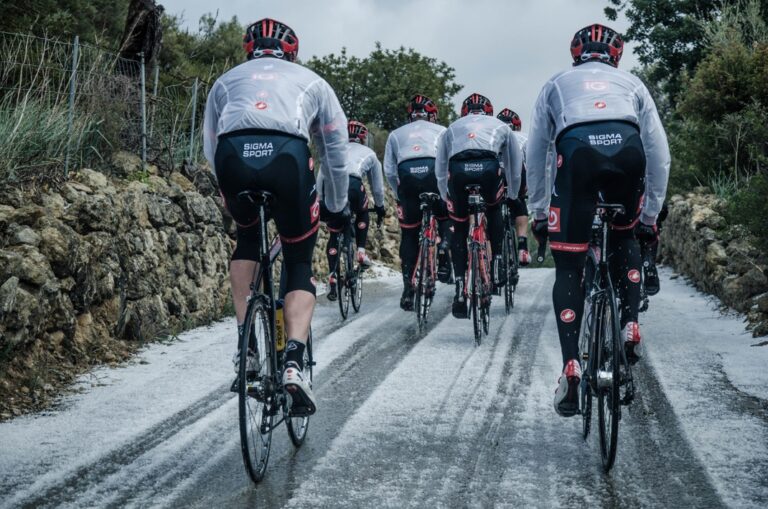If 2012 was the year of the bike, one in which the profile of the sport reached new heights, in the UK at least, for many people it was also the year of the doper: one in particular.
Lance Armstrong captured headlines for all the wrong reasons after his years of lies, cheating, and bullying were exposed by the United States Anti-Doping Agency (USADA) in its 1,000-page document, the oft-quoted, Reasoned Decision.
Armstrong was stripped of his seven Tour de France ‘victories’ and dropped like a hot potato by the sponsors who bankrolled his career and reaped the commercial benefits of his success – Giro, Nike, Oakley, Trek and others – each claiming ignorance of his methods.
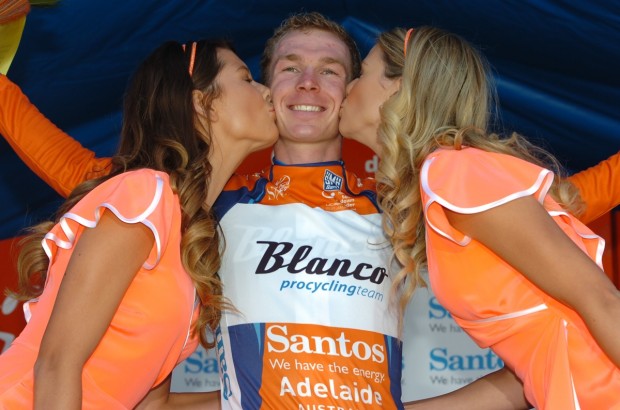
In the latest of our series, ‘Follow that! How 2013 can top 2012’, we’ll examine the issue of doping, how it might be tackled, and what hope the sport has of ridding itself of those who have done so much to harm it.
1) Deny accreditation to managers who doped as riders
The argument that cycling benefits from the continued involvement of those who harmed it is fatuous. A similar logic was peddled at the time of the banking collapse: the so-called ‘talent’ whose greed brought about the credit crunch and subsequent recession had to be retained, the argument ran, for how else could the banks generate the profits necessary to repay the taxpayer-funded bail out? It is to no one’s credit that those responsible for the worst recession since the 1930s continue to earn inflated salaries while the economy suffers as a result of their recklessness.
Equally, it is cycling’s shame that those who have disgraced it continue to hold positions of power and influence, gained from their fraudulent success as riders. Hundreds of ex-dopers continue to make a living from professional cycling, many in its top tier. Having cheated clean cyclists from their rewards as riders, they now deprive the same generation of careers in management.
More alarmingly, the example set by successful ex-dopers to new professionals is that crime pays. A young cyclist could be forgiven for watching men like Jonathan Vaughters, Alexandre Vinokurov, and Bjarne Riis, general managers and team owner respectively of Garmin-Sharp, Astana, and Saxo Bank-Tinkoff Bank, striding from gleaming tour bus to VIP reception and concluding that the rewards for men who doped as riders extend far into retirement. This must end.
2) Two strikes and you’re out
A first doping offence should be punished by a 12-month suspension, to begin on the day on which the suspension is passed. Managers should be obliged to withdraw a rider from the team as soon they fail a doping control and not allow them to race during often protracted defence proceedings.
Alberto Contador’s ban for a positive test for clenbuterol while leading the 2010 Tour de France was finally imposed in February 2012, during which time he had completed victory in the race in which he had tested positive, as well as the 2011 Giro d’Italia – results of which he was subsequently stripped, in a further embarrassment to cycling. Contador returned to competition six months after receiving a backdated two-year ban.
Those found guilty of a second doping offence should be banned for life. The implicit lack of contrition from a repeat offender should cost them their place in the sport.
3) Change the leadership at the UCI
UCI president, Pat McQuaid, and honorary president, Hein Verbruggen, were at the helm during the dirtiest era in cycling’s history. The most charitable analysis of their stewardship of the sport is that is has been grossly incompetent. This charge alone should be enough to see from their posts.
The UCI’s decision earlier this week to disband its Independent Commission, unilaterally, according to the commissioners, provided further evidence of an organisation in turmoil. After months spent rejecting the idea, McQuaid now favours ‘truth and reconciliation’ as the process to lead cycling to happier pastures, allegedly at the behest of WADA.
Cycling will remain a laughing stock as long as McQuaid remains the president of its governing body; likewise Verbruggen, who, according to USADA, insisted that Armstrong had “never, never, never” doped, a statement contradicted by the Texan in his confession to Oprah Winfrey.
4) Forget Lance Armstrong
Despite the irony of its authorship, McQuaid’s statement that Lance Armstrong “has no place in cycling,” is incontrovertible. As long as he commands an audience for his pronouncements, however, the disgraced Texan will remain at the heart of the sport – the only cycling story for a mainstream media not interested in cycling. Golf has finally moved on from the Tiger Woods infidelity scandal by celebrating the achievements of young champions like Rory McIlroy. Cycling must do the same.
If Armstrong sincerely regrets his years of lying, cheating, and bullying, and, as he maintains, the hurt he caused his family, friends, and supporters, and the damage he caused to the sport by doing so, he will seek a quiet existence, far from the public eye, and far from cycling.
5) Celebrate clean riders
2013 could be the year of the clean. If the season ends with a second Grand Tour victory for Wiggins, a first for Chris Froome, a second Tour de France green jersey for Mark Cavendish, Classics success for a resurgent Fabian Cancellara, victories for Team Sky with new coaches recruited from outside professional road racing, the sport will have much to celebrate.
The WorldTour season has begun with victory in the Tour Down Under for 23-year-old Tom Jelte Slagter, racing in the white jersey of Blanco Pro Cycling. He took the ochre leader’s jersey from Team Sky’s Geraint Thomas, another clean, young rider with a future as bright as the jersey he bequeathed to Slagter. Better times lay ahead, surely.

